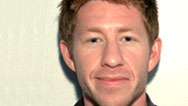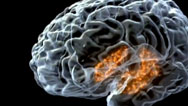Sleepless Surgeons
- By Melissa Salpietra
- Posted 07.01.07
- NOVA scienceNOW
Neurologist Jeffrey Ellenbogan of Harvard Medical School conducts research exploring just how critical sleep may be to the training and performance of doctors. Neil deGrasse Tyson visits Ellenbogan's lab to get a hands-on look at some of the experiments.
Transcript
Sleepless Surgeons
Posted: July 1, 2007
NARRATOR: Surgeons don't have it easy. They work endless hours, with patients' lives in their hands, and often go without sleep. But what if getting sleep helps them learn and perform at their peak?
Meet the scientist who is asking that exact question: Jeffery Ellenbogen is researching just how sleep—and lack of it—affects the learning and performance of a surgical task.
The host of NOVA ScienceNOW, Neil de Grasse Tyson, got to be his test subject for the day, and found out that even well rested, this surgical task wasn't easy.
NEIL DEGRASSE TYSON: I am inside the body of a patient right now.
JEFFERY ELLENBOGEN: That's right, exactly.
NEIL DEGRASSE TYSON: I'm inside the body of a patient right now.
JEFFERY ELLENBOGEN: That's right. Exactly. You are.
NEIL DEGRASSE TYSON: (OVERTALK) Okay, and presumably they are anesthetized.
JEFFERY ELLENBOGEN: They're anesthetized. (LAUGHTER) At least locally.
JEFFERY ELLENBOGEN: With the left hand you're going to be coming in— let me— let me help you out here. You're going to get a little bit lost.
NEIL DEGRASSE TYSON: (OVERTALK) Oh, there I go.
JEFFERY ELLENBOGEN: That's the liver in the background. Now, push in a little bit. There's (UNINTEL). Good—
NEIL DEGRASSE TYSON: Oh, this is a lot like—
JEFFERY ELLENBOGEN: Deeper in.
NEIL DEGRASSE TYSON: Clippers there. Okay, yeah.
JEFFERY ELLENBOGEN: That's a surgical clamp.
JEFFERY ELLENBOGEN: And now, it's going to show you in purple where you're going to bring in the stapler and clamp off the cystic duct.
NEIL DEGRASSE TYSON: Okay.
JEFFERY ELLENBOGEN: Okay? This is hard. You're doing great. This is first time.
NEIL DEGRASSE TYSON: Oh now, it shows me that I'm there.
JEFFERY ELLENBOGEN: Now squeeze. Give it a good squeeze right there. See now, this is a perfect example of you've now—clamped this cystic artery and the cystic duct together. You can release.
NEIL DEGRASSE TYSON: That's bad, or good?
JEFFERY ELLENBOGEN: That's not good.
NEIL DEGRASSE TYSON: Okay. (LAUGHTER) That would be bad. This is not good.
NEIL DEGRASSE TYSON: Oh, so this is a good clamp because it didn't turn red. So, it told me I did good.
JEFFERY ELLENBOGEN: That one was perfect.
NEIL DEGRASSE TYSON: All right.
JEFFERY ELLENBOGEN: See, the key thing here is learning some of the generalizable skills, some of the skills that allow you to think about movements that are happening with both hands at the same time.
NEIL DEGRASSE TYSON: Okay. So now, there's a motor-kinetic activity that I'm doing here. And, you would train me to do this. And presumably, when I'm asleep, I get better at is. Is that correct?
JEFFERY ELLENBOGEN: Well, that's the hypothesis. We don't know that for sure, and that's what we're going after. We really want them to be as educated as possible. And, to be educated, they need a lot of experience, and they need to be up all night. But, here we're saying, "Well, wait a minute. Maybe getting some sleep is actually going to facilitate memory and skill acquisition."
NEIL DEGRASSE TYSON: Okay. Okay. So now, let's get one more staple in there.
NEIL DEGRASSE TYSON: Got it.
JEFFERY ELLENBOGEN: And, a feel—you got it.
NEIL DEGRASSE TYSON: Four good staples, four bad staples.
JEFFERY ELLENBOGEN: Almost. (LAUGHTER) Good first time though. I'll say that.
NARRATOR: Ellenbogen's study should provide evidence about how sleep affects the learning and performance of surgical skills. This may well improve the training of future surgeons. And that may help us all rest easier.
Credits
Production Credits
- Video short produced by
- Melissa Salpietra and Susan K. Lewis
- Original footage produced for NOVA by
- Julia Cort
Related Links
-

Sleep
Why do we need sleep? Part of the answer may be to strengthen memories.
-

Sleep: Expert Q&A
Matt Walker of Harvard Medical School answers questions on how sleep impacts our ability to learn.
-

The Sleep-Memory Connection
Explore the stages of a good night's sleep and the research linking sleep to memory.
-

How Memory Works
Neurobiologists are honing in on how memories form, and then finding ways to erase them.



